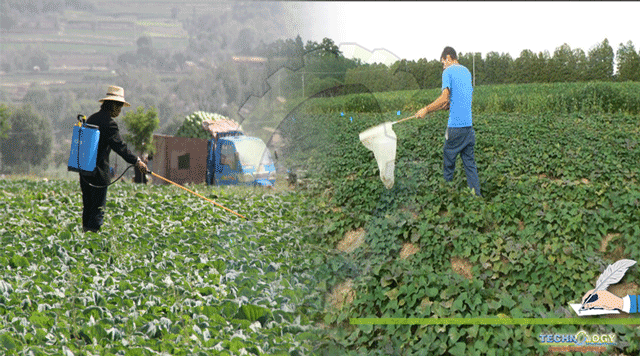IPM projects in Pakistan were initiated in 1971 including a seven year PL-480 funded project on bollworms, and a 3-year PL-480 project on the whitefly funded by the Asian Development Bank.

Integrated pest management is a common agriculture base knowledge that the farmer has used for centuries. It uses multiple tactics in an integrated pattern to manage the pest populations below the economic injury level. It tries to manage the pest populations at an economically manageable level through the use of resistant plant varieties, cultural control (late sowing, intercropping, crop rotation), biological control (predators, parasitoids, parasites), physical control (use of pheromones traps, hand-picking of pest) and use of less toxic pesticides.
Firstly, in 1968, the Food and Agriculture Organization (FAO) experts used this term Integrated pest management. IPM is accepted and practiced in developed countries like the USA, China, UK, Australia and Germany. Certain government legislation and programs are initiated to evaluate the mechanism and progress of IPM techniques respectively. Programs include researchers, government, farmers, market agencies and advisory agencies, and feedback mechanisms that complete the chain of success stories of IPM.
IPM projects in Pakistan were initiated in 1971 including a seven year PL-480 funded project on bollworms, and a 3-year PL-480 project on the whitefly funded by the Asian Development Bank. But these projects had not produced remarkable changes in production method. The main reason is the limited nature of the project and without the involvement of major cotton research institutes. Pakistan’s agriculture is mainly based on the use of pesticides. There is a low farmer literacy rate in Pakistan, They are less familiar with the modern techniques and updated knowledge of agriculture. Today, farmers do not prefer to use alternative techniques like biological, physical, and cultural control to maintain the pest populations below the economic injury level. In fact, they want to eliminate all the pest populations with pesticides which disturb the crop ecosystem and pollute the environment which is not possible at all. Over-dependence on pesticide lead to destroying the predators, and parasitoids of the Argo- ecosystem. It contaminates groundwater, food products and ultimately affects agricultural trade. Pesticides are also producing adverse effects on birds, mammals and fishes. Year after year, pests are developing resistance to pesticides, and the solution is to use more frequent pesticide leading toward pesticide treadmill. Pesticide companies are selling different types of pesticides which are temporarily controlling the pest but imposing hazardous effects on ecosystem.
In recent years, some pests of major crops like cotton white fly and fruit fly developed resistance toward pesticides. Cotton whitefly outbreak was mainly triggered due to extensive use of pesticides, resulted in reduction in the natural predators and resistant towards most of the conventional insecticides.
Today, the core needs for Pakistan agriculture are IPM programs to focus on controlling pests through cultural, biological, and physical control and host plant resistance and minimizing pesticide usage. The knowledge of the target’s pest life cycle, its interaction with the environment, and it’s biological control in a crop habitat are the main pillars for the success of IPM programs. IPM techniques should be practice at Agriculture Educational Institutes. Farmer field school should be established at ground level to teach the farmers about pest and the benefits of conserving natural enemies. The government of Pakistan should engage agriculture extension department to provide the updated information to farmers through proper channel. There are hundreds of professors, Ph.D. researchers and extension workers in Pakistan. They should come forward and established the IPM strategies for the effective control of pest species and conserve the environment.